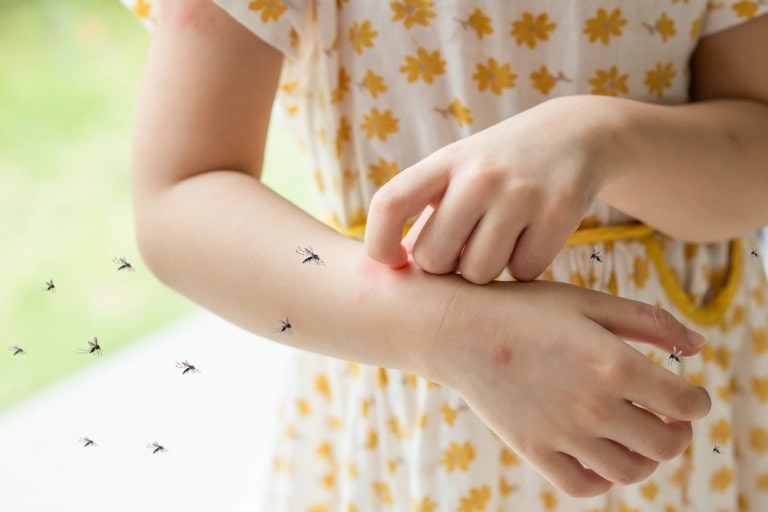Orlando’s warm climate attracts not only tourists but also a variety of pests. While some of these insects are merely a nuisance, others can pose serious health risks through their bites and stings.
Allergic reactions to pest bites and stings can range from mild discomfort to severe medical emergencies. It’s essential for Orlando residents to be aware of these risks and take preventive measures to protect themselves and their families.
Here’s a look at the health risks associated with insect bites and stings, focusing on the potential allergic reactions that can occur. Additionally, we’ll discuss how Orlando pest control services can significantly reduce the incidence of these reactions, ensuring a safer environment for everyone.
Understanding Allergic Reactions
When an insect bites or stings, it injects venom or other substances into the skin. For some individuals, this can trigger an allergic reaction.
The body’s immune system responds to these foreign substances, sometimes in an exaggerated manner. Symptoms of an allergic reaction can include redness, swelling, itching, and pain at the site of the bite or sting.
In more severe cases, individuals may experience systemic reactions such as hives, difficulty breathing, dizziness, or anaphylaxis. Anaphylaxis is a life-threatening condition that requires immediate medical attention.
Recognizing the signs of a severe allergic reaction and knowing how to respond can be crucial in preventing serious health outcomes.
Common Culprits in Orlando
Orlando is home to various pests that can cause allergic reactions through their bites and stings. Mosquitoes are notorious for their itchy bites, which can sometimes become infected or trigger allergic responses.
Fire ants are another common pest; their stings can cause intense pain and allergic reactions in sensitive individuals. Bees and wasps are also prevalent and can cause severe allergic reactions, especially if a person is stung multiple times or has a known allergy to their venom.
Ticks are another concern, as their bites can lead to allergic reactions and transmit diseases such as Lyme disease. Fleas, often carried by pets, can cause itchy bites and allergic dermatitis in both humans and animals.
Understanding which pests are most likely to cause problems can help residents take appropriate preventive measures.
Health Risks of Bites and Stings
The health risks associated with insect bites and stings go beyond immediate pain and discomfort. Allergic reactions can escalate quickly, leading to severe health issues.
For instance, repeated exposure to certain insect venoms can increase the likelihood of developing an allergy. In some cases, individuals who have never had an allergic reaction before may suddenly experience one.
In addition to allergic reactions, insect bites and stings can lead to secondary infections. Scratching an itchy bite can break the skin, allowing bacteria to enter and cause an infection. This can result in additional complications requiring medical treatment.
Reducing the Incidence of Allergic Reactions
Effective pest control is a critical component in reducing the incidence of allergic reactions to bites and stings. By minimizing contact with pests, residents can significantly decrease their risk of experiencing these reactions.
Orlando pest control services can help identify and eliminate pest infestations, creating a safer living environment. Homeowners can also take steps to reduce pest populations around their properties.
Eliminating standing water can help control mosquito populations, as these insects breed in stagnant water. Keeping yards free of debris and maintaining clean, clutter-free environments can discourage pests like ants and ticks. Sealing cracks and gaps in homes can prevent pests from entering and establishing nests.
Personal Protective Measures
In addition to professional pest control, personal protective measures are essential in preventing bites and stings.
Using insect repellent can provide a first line of defense against mosquitoes and other biting insects. Wearing long sleeves and pants, especially in areas known to have high pest activity, can also reduce the risk of bites.
For those with known allergies to insect stings, carrying an epinephrine auto-injector (EpiPen) is crucial. This device can provide life-saving treatment in the event of a severe allergic reaction.
Educating family members and friends on how to use an EpiPen and recognizing the signs of anaphylaxis can further enhance safety.
Importance of Medical Attention
Seeking prompt medical attention for insect bites and stings is vital, especially if an allergic reaction is suspected.
Even mild reactions can worsen over time, and healthcare professionals can provide appropriate treatment to prevent complications. For severe reactions, emergency medical services should be contacted immediately.
Regular check-ups with a healthcare provider can help individuals manage allergies and receive advice on preventive measures. Sometimes, allergy testing and immunotherapy may be recommended to reduce sensitivity to insect venoms.
Insect bites and stings are more than just an inconvenience; they can pose significant health risks, particularly for those prone to allergic reactions. By understanding these risks and taking proactive steps, Orlando residents can protect themselves and their loved ones.
Effective pest control, personal protective measures, and prompt medical attention are key components in minimizing the impact of pest-related allergic reactions. Ensuring a safe and comfortable environment requires vigilance and cooperation from the entire community.
